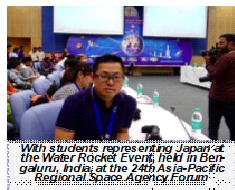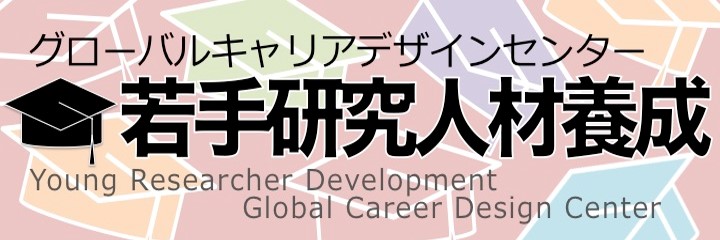
【Background】
2007: Participated in i-ECBO, for students of the Graduate School of International Development and Cooperation and interned at UP NISMED in the Philippines.
2010: Participated in G.ecbo Follow-up Research Internship and interned at the UP NISMED in the Philippines.
Currently employed as a teacher at Gunma Kokusai Academy (GKA) in Ota city, Gunma prefecture. GKA is a private Japanese school with a 12-year unified English immersion program. He teaches Chemistry in English to senior high-school students and also Science to junior high-school students enrolled in the International Baccalaureate (IB) Diploma Programme (DP) . Takamatsu is homeroom teacher for a 9-year class as well as advisor for the Department of International Liberal Studies and the Volunteering Committee. He and his wife, who is non-Japanese, have two children.
- How would you describe in brief the time from your internship until now?
- How would you describe in brief the time from your internship until now?
“Find the answers to your own questions.” “Keep on trying every day.” When I was doing my internship, I focused my research and activities on international cooperation in the field of developing education for understanding in developing countries. Every day I was searching for hints on what international cooperation and science education should be. Now I am in an educational environment which is unique globally speaking, and in my classes every day and the various school events, I am repeating the process of searching, challenging and reviewing ways to make what I do even more meaningful and ways to make it even more interesting.
- When you do you feel that you are able to make use of your experiences in G.ecbo?
The main purpose of my stay in the Philippines was to find out about, and to experience firsthand, educational development in developing countries. I felt a difference in the culture and the way of thinking of teachers, and I was able to have discussions with teachers then and there. These experiences have been valuable at my present workplace involving education in Japan, where many of my colleagues are from different countries and have different values. My experiences have facilitated mutual understanding in such matters as what way and to what degree to argue for something or to allow it.
-What do you feel made a big impression on you and remains with you? What has been developed even further? And what advice can you share?
When I visited the Philippines and Kenya through G.ecbo, I was aware that I was out in the field, in countries where Japan has carried out education development. However, when I became a teacher at the school where I am now, I found out that it was teachers from the Philippines and Kenya who are leading the science section of the IB Programme which MEXT is promoting. When I found that out, I felt a different kind of international cooperation. I was not just a teacher in Japan but a teacher in the whole world. Then I pursued how I could carry out international cooperation in my own way, how I could contribute to education in the world, with teachers from other countries, both at school and outside of school. I cannot really give any advice about seeking work but if job-hunters consider what will have priority in their working life, and what it is that they intend to be determined about in their work, then I feel sure they will find their own opportunities. In order to take advantage of that opportunity when it comes their way, they need to persevere with self-improvement every day.

 Home
Home

